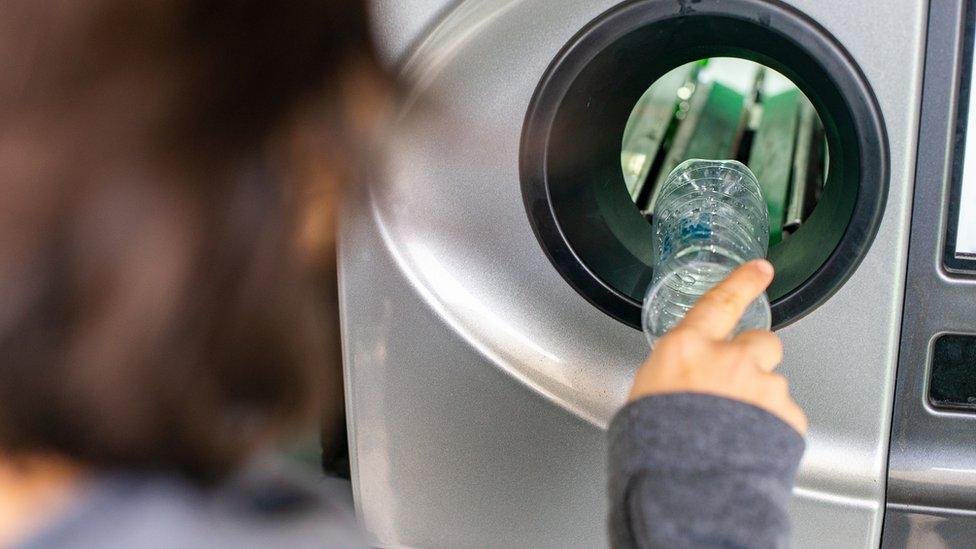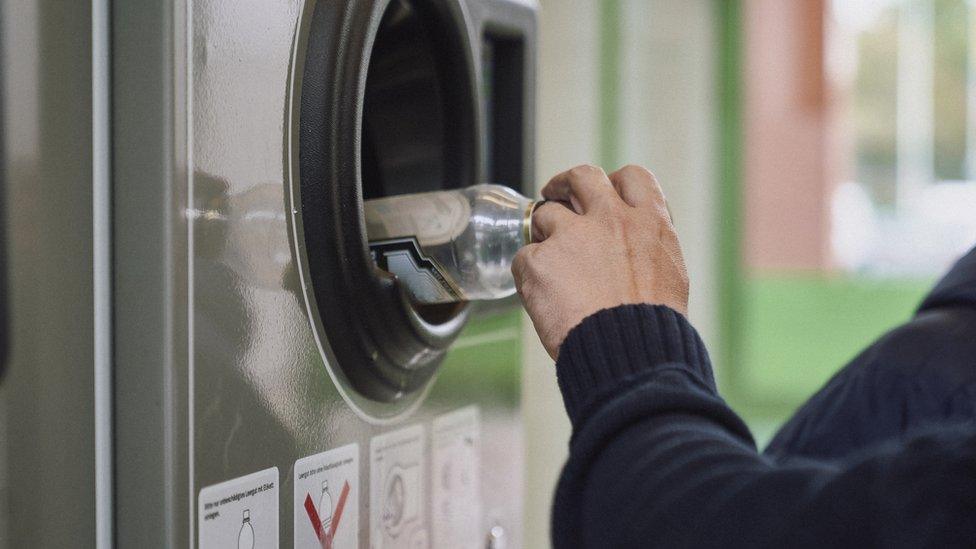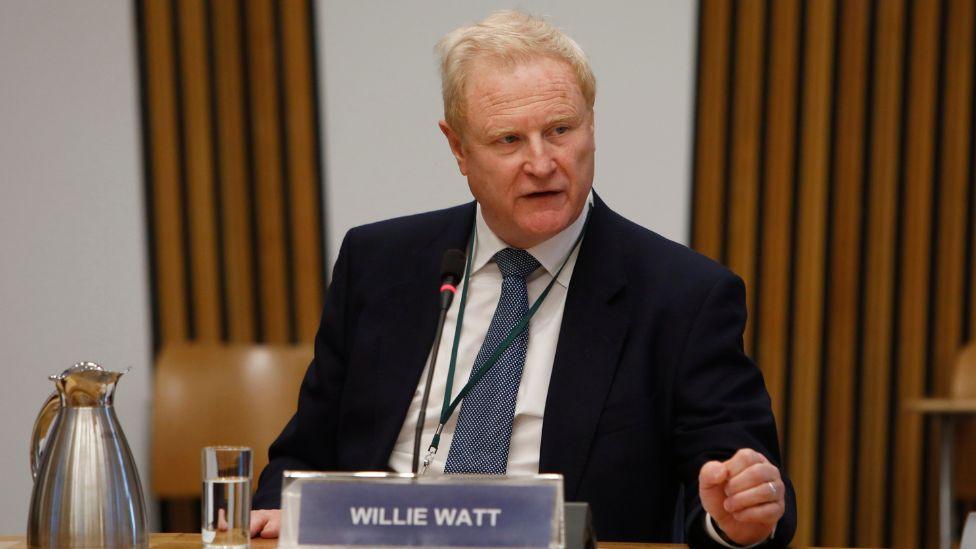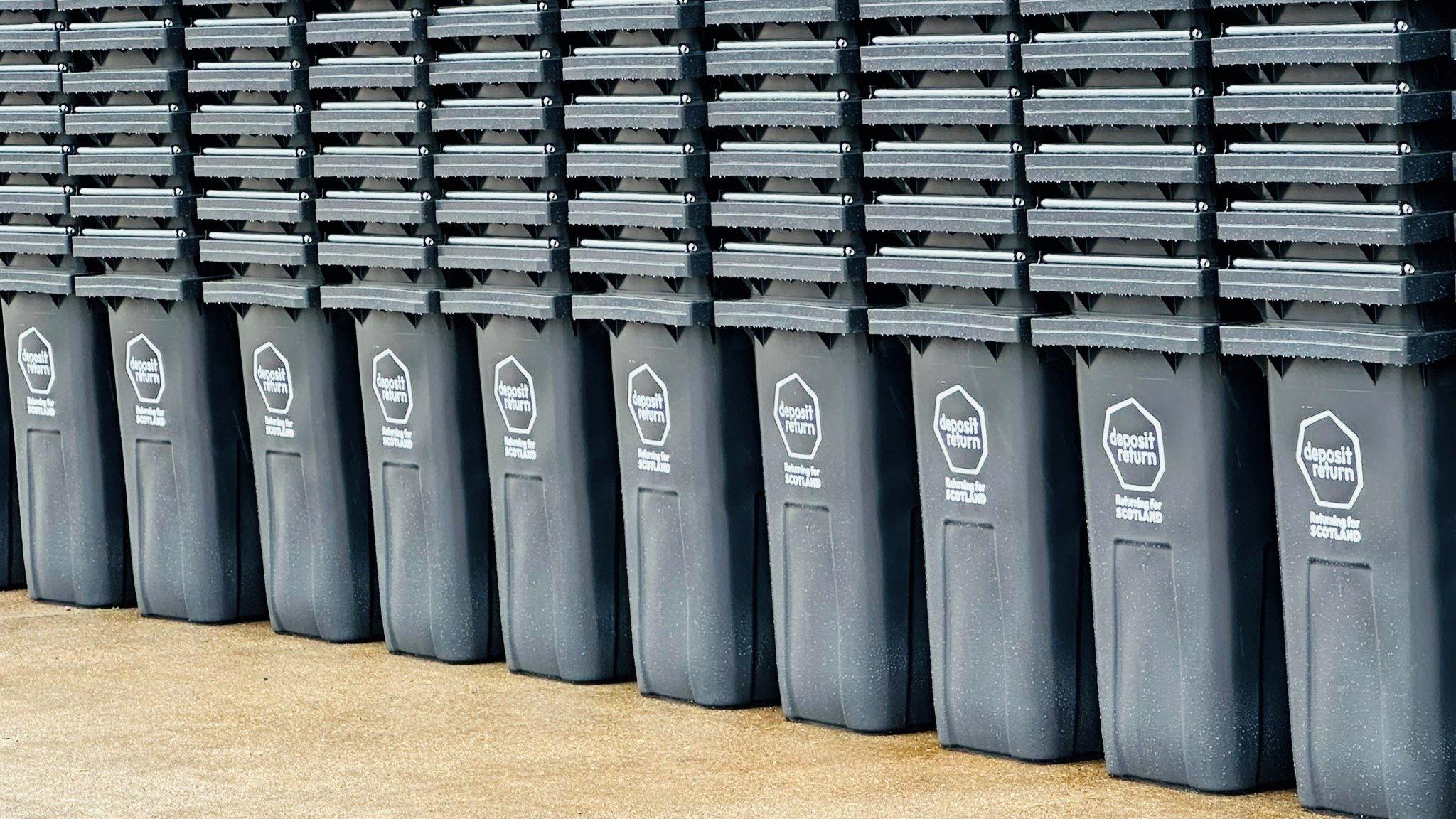Circularity Scotland collapsed with debts of £86m
- Published

The firm responsible for running Scotland's Deposit Return Scheme (DRS) collapsed with debts and liabilities of more than £86m, it has been revealed.
Circularity Scotland, a non-profit company funded by the drinks industry, called in administrators in June after ministers delayed the start of the scheme until at least October 2025.
Documents from Companies House show its liabilities amounted to almost £86.2m.
Assets available for "preferential" creditors are estimated at just £2.1m.
The Scottish government said Circularity Scotland was designed to be funded by industry, and it did not consider it had any obligation to pay compensation to those left out of pocket.
The largest creditor is Biffa, a waste management firm responsible for collecting and recycling bottles and cans for the scheme, with a liability of £65m.
In a brief statement, Biffa said: "We continue to review our position and have no further comment at this time."
The next largest creditor is German firm Reverse Logistics, which is owed £5m.
In June, the chairman of the state-owned Scottish National Investment Bank said he expected "significant losses" on a £9m loan it provided to Circularity Scotland to fund its start-up costs.
More than 40 of the Circularity Scotland's 66 employees have since launched a compensation claim with the Insolvency Service.
'Impossible position'
Circular Economy Minister Lorna Slater said in June that she was forced to delay the scheme after being put in an "impossible position" due to conditions demanded by the UK government.
Ministers at Westminster rejected this claim, and said they simply wanted it to be in line with similar proposals planned for elsewhere in the UK.
The Scottish government said on Monday that the UK government's 11th-hour intervention had left it no choice but to postpone the launch of Scotland's deposit return scheme.
A spokesman added: "We are grateful to businesses for the investment they have made. The Scottish government remains committed to the delivery of a successful deposit return scheme and the investment made to date can be utilised in the future.
"We do not consider that the action we have been required to take gives rise to any obligation to pay compensation."
Scottish Conservative Maurice Golden said: "We knew that the handling of the Deposit Return Scheme had been a catastrophe that cost Scottish firms a fortune, but these staggering sums make the scale of the disaster apparent.
"The most appalling thing is that the scheme's principles had general support, and it is only the astonishingly inept way Lorna Slater introduced the legislation, refusing to listen to any concerns or warnings, that led to it falling apart.
"Now hundreds, if not thousands, of firms are paying the price."
Related topics
- Published17 July 2023

- Published21 June 2023

- Published20 June 2023
